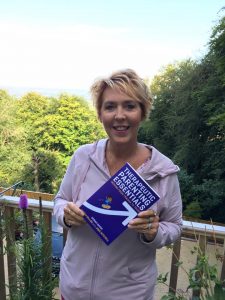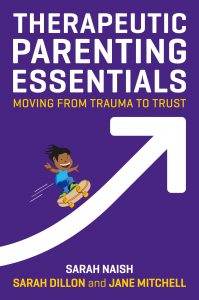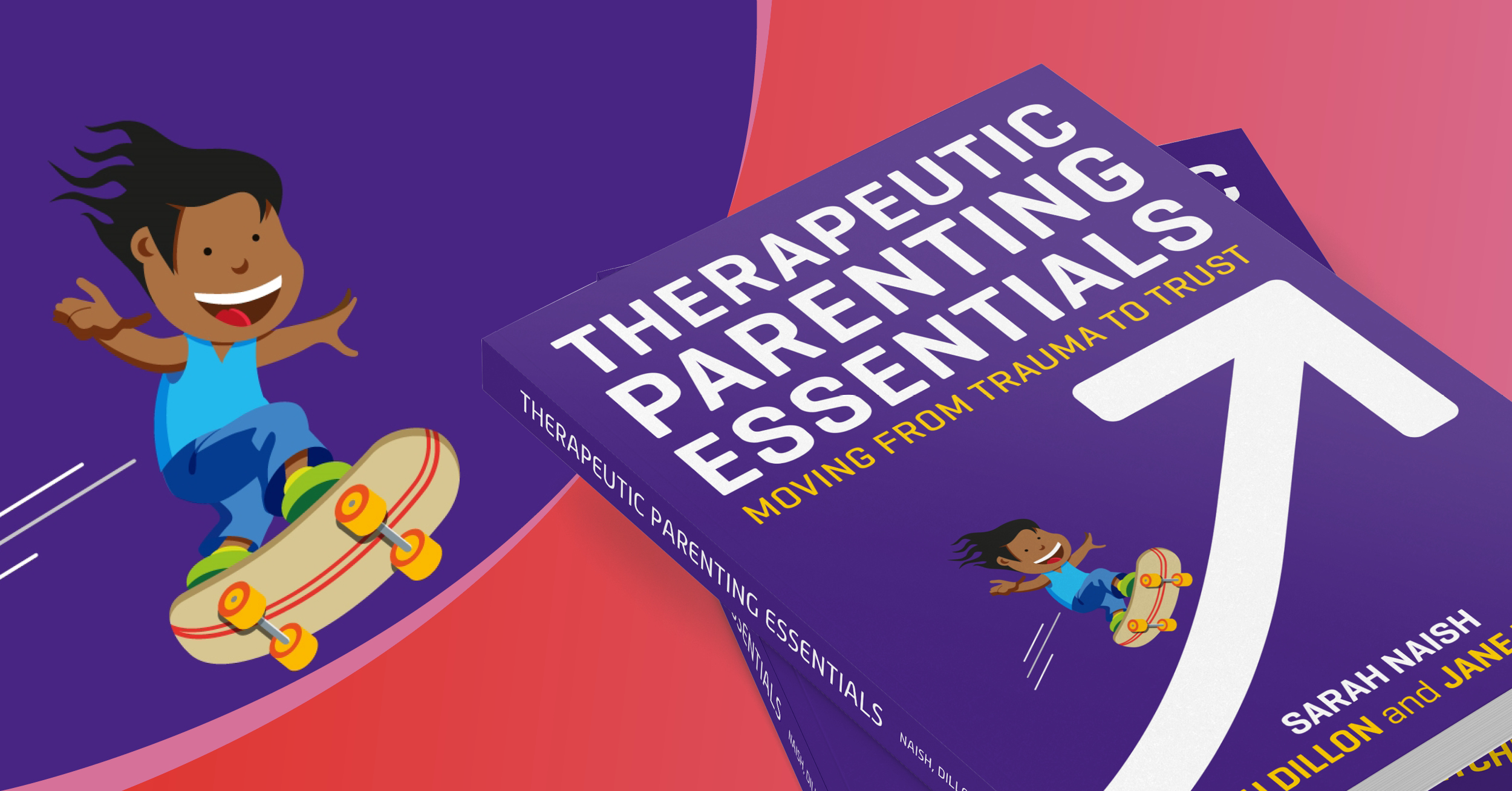Who is this book for?
Sarah Naish: The purpose of this story is to help all therapeutic parents who are raising children who have experienced trauma. It helps to assure us all that we are not alone and that our stories CAN and often DO have a positive ending, despite the challenges.
After the success of my last book, The A–Z of Therapeutic Parenting, many parents asked me how I had managed to raise my five adopted children and stay so grounded! After some reflection I realised that I had not always been grounded. In fact, the early years with the children were quite lacking in therapeutic parenting and were much more based in the ‘flying by the seat of my pants’ parenting style!
The A–Z was written to give parents understanding about why our children do the things they do, and how we can respond to change behaviours. The one thing it didn’t do was explore the EXPERIENCE of therapeutic parenting and how it FEELS. Our children’s behaviour impacts on us. There is no getting away from that.
Through carefully kept diary records I have reflected on how I felt and experienced the daily challenges, which were many and complex. I believe that if parents are able to read about the experiences of other parents who have shared the same feelings about their children and behaviours, it will help us to be more open – in particular, open to hearing about our children’s perspectives and understanding their feelings.
So, if you are looking after a child who has suffered from trauma and/or interrupted attachments and sometimes feel at the end of your tether, I am sure you will identify with the myriad situations we explore here together.
This book has also been written for supporters – to help them gain insight into life with a traumatised child, and to develop some knowledge and understanding of the reasons behind the behaviours the children show.

What is therapeutic parenting?
Therapeutic parenting is a term commonly used for foster parents, adopters, special guardians and kinship carers who are looking after children who may have suffered trauma. This may be through early-life neglect and/or abuse.
Therapeutic parenting is also used by biological parents, particularly where there may have been pre-birth trauma, separation, illness, domestic violence or any other factor affecting the child’s functioning and understanding of the world, or their attachment relationships. Many biological parents also find therapeutic parenting styles useful to use with children who are on the autism spectrum or have high cortisol levels and/or attention deficit hyperactivity disorder (ADHD).
Therapeutic parenting is beneficial for all children due to its reliance on firm boundaries and structure with a strong empathic and nurturing approach.
About the Authors
This book is written collaboratively by three co-authors; so, before
we start, let’s do some introductions:
Sarah Naish: I am an adopter of five siblings, who are referred to in this book as Rosie, Katie, William, Sophie and Charley. I’m a former foster parent, social worker and owner of an Ofsted ‘Outstanding’ Independent Fostering Agency. I work full time in training and consultancy within adoption and fostering and am also the CEO of the National Association of Therapeutic Parents.
The accounts I have written within this story are an honest, no holds barred account of my experiences of parenting and the system which adoption and fostering is a part of. I understand that system and the impact on parents, children and supporting professionals.
Sarah Dillon: I am an attachment therapist, trainer, therapeutic lead for the National Association of Therapeutic Parents, and a former child in care. I write from the viewpoint of the child. I have never lost the voice of the child, and aim to help us all to see every event directly through the eyes of the child.
Jane Mitchell: I am a birth mother to three children (now grown up!) and also an adopter.
I specialise in developing resources and training around attachment, developmental trauma and related neuroscience. I’m coauthor of the Diploma in Therapeutic Parenting and the accompanying handbook for the Diploma, The Complete Guide to Therapeutic Parenting. I have worked with adoptive and foster families for over 15 years and am also a founding committee member of the National Association of Therapeutic Parents.
How this book is written
This book is written collaboratively in order to highlight two important perspectives – that of the parent, and that of the child. Sarah Naish writes from her direct experiences as an adoptive parent. She describes her feelings upon meeting her children and throughout the difficulties (and joys) experienced during the children’s childhood before arriving at a position of family stability many years later.
Sarah Dillon draws on her own lived childhood experiences to write in the voice of Sarah’s children: Rosie, Katie, William, Sophie and Charley. Their story begins as they were taken into care, and we then follow them through their life-changing moments, fearbased behaviours and finally as they develop trust, ending in a stable family unit.
Throughout the writing of this book, Sarah Dillon has worked closely with now-adult Rosie to ensure that her portrayal of the children’s voices is authentic. Their experiences within the care system were remarkably similar and it is this shared experience that has enabled Sarah to write from the perspective of the children.
Jane Mitchell provides the commentary on the story as it unfolds. She draws on her professional and personal expertise to explain what’s really going on in the family’s interactions, including the often-conflicting viewpoints of the therapeutic parent and their child. As well as helping to make sense of the scenarios, the commentaries are accompanied by points for reflection and tips for you to try at home. Jane has also created Appendices, where you can find out more about some of the theories which are talked about in this book, and a Glossary providing definitions of words that may be unfamiliar.
Both Jane Mitchell and Sarah Dillon know Sarah Naish’s (now adult) children and work alongside two of them professionally. We have taken great care to ensure that the views, thoughts and feelings attributed to them in our books are authentic.
 Pick up a copy of Therapeutic Parenting Essentials from our website, or Amazon if you need it to arrive before Christmas!
Pick up a copy of Therapeutic Parenting Essentials from our website, or Amazon if you need it to arrive before Christmas!
